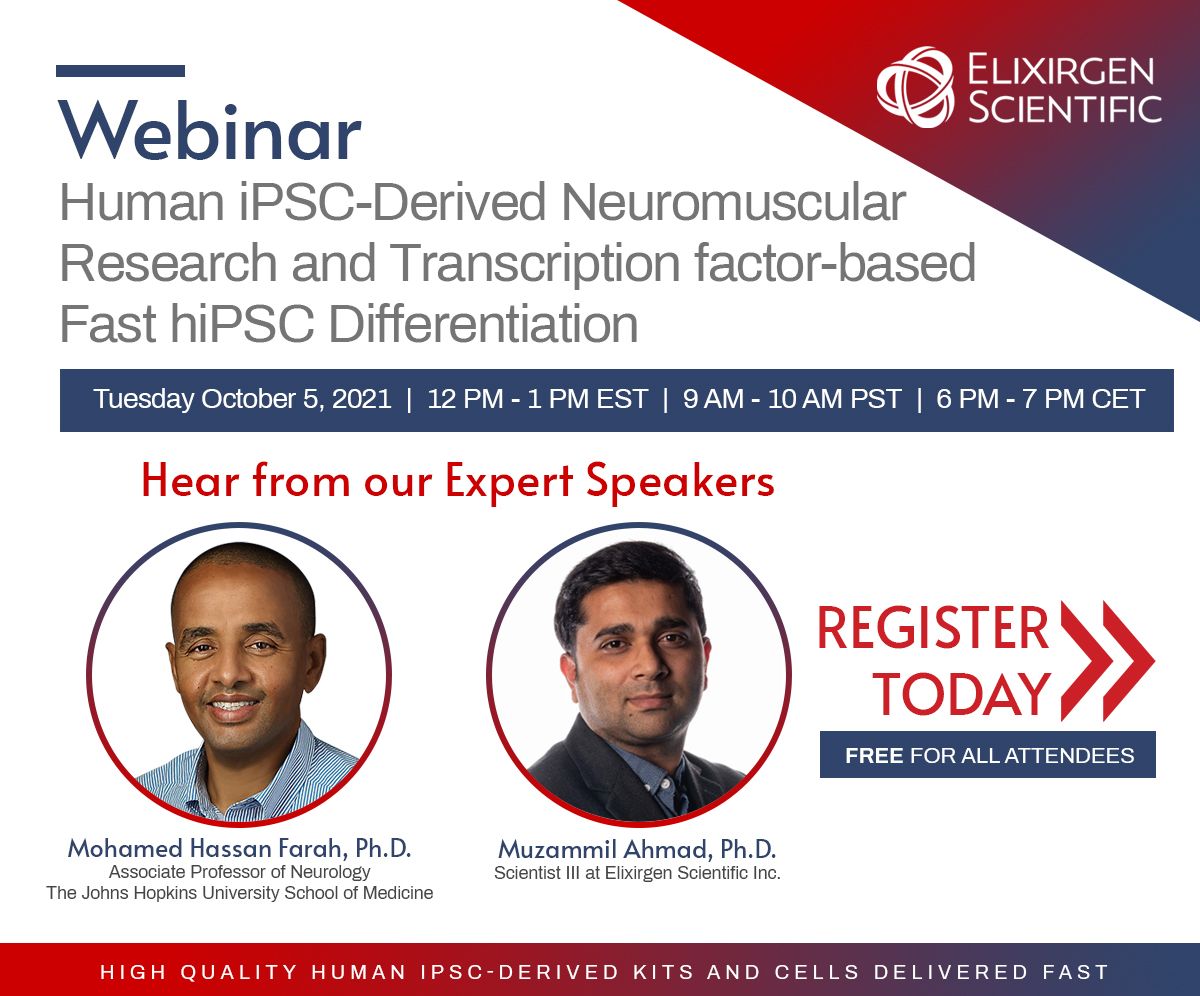
Webinar: Human iPSC-Derived Neuromuscular Research and Transcription factor-based Fast hiPSC Differentiation
Watch our webinar and hear from our expert panelists Mohamed Hassan Farah, Ph.D. from the Johns Hopkins University School of Medicine and Muzammil Ahmad, Ph.D, from Elixirgen Scientific as they discuss human iPSC-derived neuromuscular research and transcription factor based fast hiPSC differentiation.
Speaker bios
Mohamed Hassan Farah, Ph.D.
Associate Professor of Neurology, The Johns Hopkins University School of Medicine
Dr. Mohamed H. Farah is an associate professor in the department of neurology as well as the department of neuroscience at The Johns Hopkins University School of Medicine. Dr. Farah received his undergraduate degree in biochemistry from Virginia Tech in Blacksburg, Virginia. He earned his Ph.D. in neuroscience from the University of Michigan in Ann Arbor, Michigan and completed a postdoctoral fellowship in the department of pathology at The Johns Hopkins University School of Medicine. The Mohamed Farah Lab studies axonal regeneration in the peripheral nervous system. His team is currently engaged in interactions of target tissues and human axon from IPSC-derived neurons.
Muzammil Ahmad, Ph.D.
Scientist III, Elixirgen Scientific Inc.
Dr. Muzammil Ahmad joined Elixirgen Scientific in 2016. He has a Ph.D. in Biotechnology from the National Centre for Cell Science (NCSS) in India, and completed a postdoctoral fellowship at the NIH National Institute on Aging. He has over 15 years experience in the biotech and pharmaceutical research industries. Dr. Ahmad works in Research & Development at Elixirgen Scientific, where he supervises a team of Ph.D. scientists and lab assistants that develop and fine-tune commercial iPSC-derived differentiation kits for a myriad of cell types. Dr. Ahmad specializes in creating intuitive and easy-to-follow protocols to ultimately save clients’ time and increase their efficiency so they can focus on achieving their research goals.

